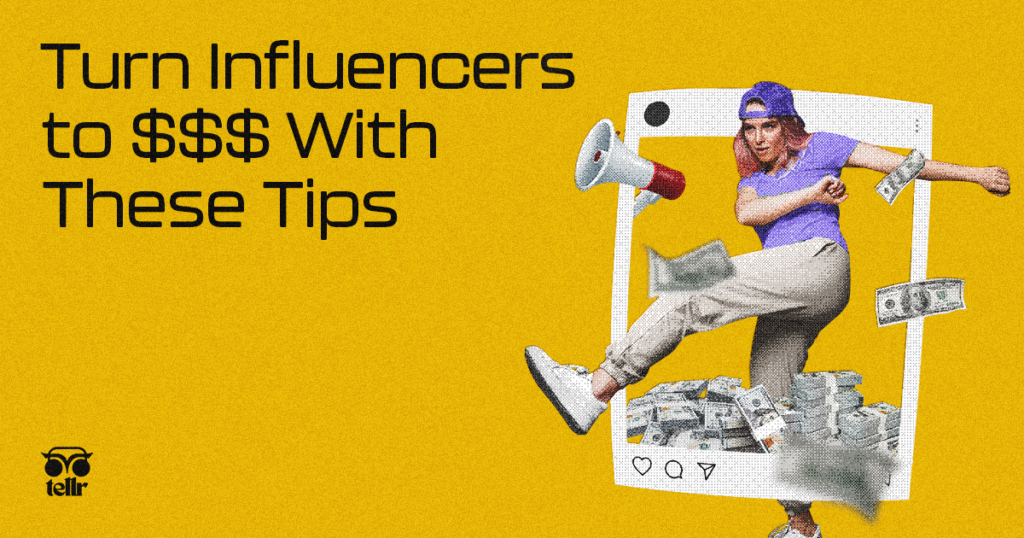In today’s ever-evolving business landscape, small and medium-sized enterprises (SMEs) face the daunting task of standing out in a crowded marketplace. With traditional advertising methods becoming less effective, SMEs must explore innovative strategies to connect with their target audience and drive sales. One such strategy that has gained significant traction is influencer marketing, a powerful tool that enables businesses to leverage the reach and credibility of influential individuals to promote their products or services. In this blog, we will delve into the intricacies of influencer marketing, from harnessing the power of social influencers to maximizing partnerships with celebrities.
Key Players in Influencer Marketing
Social influencers, also known as micro or nano influencers, are individuals who have amassed a dedicated following on social media platforms such as Instagram, YouTube, and TikTok. These influencers possess the unique ability to sway the opinions and purchasing decisions of their followers through authentic and engaging content. Leveraging social influencers allows SMEs to tap into niche communities and target demographics with precision, driving brand awareness and customer engagement.
Types of Social Influencers
Nano Influencers: With a relatively small but highly engaged following, nano influencers offer a cost-effective way for SMEs to reach niche audiences. Their authenticity and relatability make them ideal partners for grassroots marketing campaigns aimed at building brand loyalty and advocacy.
Micro Influencers: Micro influencers have a slightly larger following than nano influencers but still maintain a high level of engagement with their audience. Collaborating with micro influencers enables SMEs to access a broader yet still targeted demographic, driving product discovery and consideration among potential customers.
Macro Influencers: Positioned between micro and mega influencers, macro influencers boast a sizable following ranging from tens of thousands to hundreds of thousands. Partnering with macro influencers allows SMEs to reach a broader audience while maintaining a level of authenticity and engagement that resonates with consumers.
The Rise of Celebrities in Influencer Marketing
While social influencers play a vital role in influencer marketing, leveraging celebrities can take brand partnerships to the next level. Celebrities, including actors, musicians, athletes, and personalities, possess immense influence and reach, making them powerful allies for SMEs seeking to elevate their brand presence and drive sales. However, collaborating with celebrities requires careful planning and strategic execution to ensure a successful outcome.
Turning Celebrities into Revenue Streams
Identify Brand Alignment: Before approaching celebrities for partnerships, SMEs must ensure that the celebrity’s image and values align with those of their brand. Conducting thorough research and vetting potential partners can help SMEs identify celebrities whose endorsement will resonate authentically with their target audience.
Negotiate Collaborative Partnerships: Rather than traditional endorsement deals, consider collaborative partnerships that allow SMEs and celebrities to co-create products or campaigns. By involving celebrities in the creative process, SMEs can leverage their expertise and influence to generate buzz and excitement among consumers.
Leverage Social Media Platforms: Celebrities’ social media platforms serve as powerful channels for amplifying brand messaging and driving engagement. Encourage celebrities to share authentic content featuring SMEs’ products or services, leveraging their massive reach to increase brand visibility and drive sales.
Measure Impact and ROI: To gauge the effectiveness of celebrity partnerships, SMEs must track key metrics such as brand sentiment, website traffic, and sales conversions. By analyzing data and insights, SMEs can determine the ROI of their celebrity collaborations and make informed decisions for future campaigns.
Thai Fashion Boutique Success Through Celebrity Partnerships
Let’s examine how Thai Fashion Boutique successfully leveraged celebrity partnerships to drive revenue and brand awareness:
Thai Fashion Boutique, a burgeoning SME in the fashion industry, sought to elevate its brand presence and attract a wider audience. Recognizing the power of celebrity endorsements, Thai Fashion Boutique collaborated with a popular actress and style icon to co-design a limited-edition clothing line.
Through strategic marketing campaigns and social media activations, Thai Fashion Boutique showcased the celebrity-endorsed collection, generating buzz and excitement among fans. The actress’s genuine enthusiasm for the brand resonated with her followers, resulting in a surge in website traffic and sales.
By leveraging the celebrity partnership to create compelling content and immersive experiences, Thai Fashion Boutique achieved unprecedented success, cementing its position as a fashion-forward brand and driving significant revenue growth.
Conclusion
In today’s digital age, influencer marketing has emerged as a potent tool for SMEs to connect with consumers and drive business growth. From social influencers to celebrities, leveraging influential individuals enables SMEs to amplify their brand messaging, foster authentic connections with their audience, and ultimately drive sales. By understanding the nuances of influencer marketing and strategically partnering with the right influencers, SMEs can unlock new opportunities for success and thrive in a competitive marketplace. So, embrace the power of influencer marketing and watch your SME soar to new heights of profitability and prominence!

